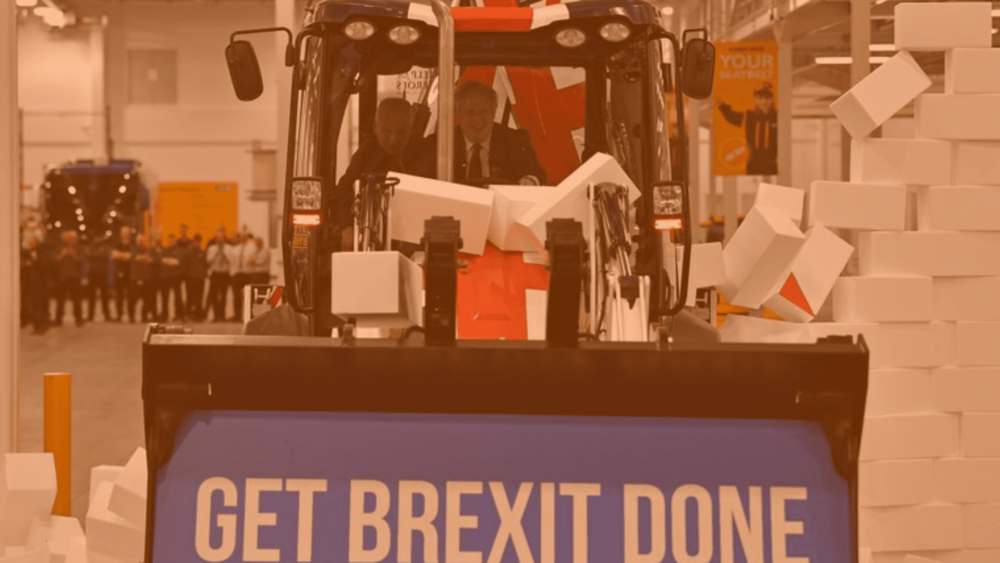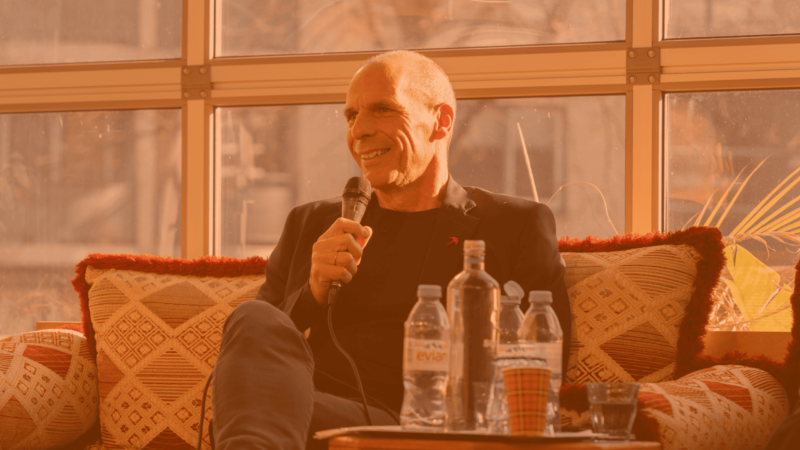Amnesty International says Rishi Sunak must review donations from JCB and its directors after our findings
The Tories took more than £1m from a British construction giant and its directors after the UN linked it to the destruction of Palestinian villages.
Digger firm JCB was one of 122 firms identified in a UN report four years ago after photos showed its machinery being used to build Israeli settlements in the occupied West Bank. The company, officially JC Bamford Excavators Ltd, was accused of being “involved” in the “supply of equipment and materials” that facilitated the construction of settlements.
Now analysis by openDemocracy shows that, since the UN report was published, the Conservative Party has accepted more than £1.3m from JCB and the Bamford family, which runs the company. This includes almost £218,000 from JCB companies, and £983,000 from Mark Bamford, one of the directors of JC Bamford Excavators Ltd.
A further £100,000 was given by the company’s chair, Anthony Bamford, who is a Conservative peer.
Most recently, J C Bamford Excavators Ltd gave £40,000 to Conservative MP Simon Clarke, to “fund the employment of a campaign manager”.
JCB has rejected claims that it contributes to human rights abuses in the West Bank. But both a UK trade watchdog and the director of the UK charity Lawyers for Palestinian Human Rights say JCB is failing to do due diligence on who buys and uses its kit.
‘Key supplier’
JCB has long faced allegations over its links to settlements in the West Bank: the Israeli military has been photographed using its bulldozers to demolish Palestinian homes since at least 2006.
Amnesty International describes the company as a “key supplier of machinery used in this systematic violation of human rights,” adding that it has “failed to take effective action”.
Responding to openDemocracy’s findings, Amnesty’s UK economic affairs director Peter Frankental said any political donations from JCB “must come with an enormous health warning”.
“Under international human rights standards for business, JCB has a clear responsibility to take measures to ensure its goods are not used in the commission of human rights violations. For years we’ve been saying there should be serious consequences for JCB if it failed to take measures to prevent its goods being misused overseas.”
He added: “The Conservative Party should urgently review all further donations from JCB until it can be shown that the company has taken reasonable steps to stop its equipment being used to unlawfully demolish Palestinian homes in the Occupied Territories.”
Neither JCB nor the Conservative Party responded to openDemocracy’s requests for comment.
Due diligence
In 2021, a UK government watchdog found that JCB “did not take any steps to conduct human rights due diligence of any kind despite being aware of alleged adverse human rights impacts”.
It followed a complaint from Lawyers for Palestinian Human Rights, which accused the company of “not operating in line with the OECD guidelines” because its machinery is used in the demolition of Palestinian property. (The OECD is a membership organisation for western governments overseeing aspects of trade and economic policy.)
The complaint also accused JCB of “contributing to adverse human rights impacts” and “failing to seek ways to prevent and mitigate” this.
It was filed to the UK’s National Contact Point (UK NCP) regulator, which works to enforce OECD rules, in December 2019 – the same day that then prime minister Boris Johnson invited cameras to film a high profile election stunt at the JCB Cab Manufacturing Centre in Staffordshire, which saw him drive a Brexit-themed digger through a polystyrene wall.
In its ruling, the watchdog said JCB had “a clear business relationship” with its sole supplier in Israel – a company called Comasco – and that it was “not carrying out human rights due diligence in its supply chain”.
The watchdog conceded that the use of machinery in Israeli settlements “cannot be conclusively linked to JCB” because the company did not have “leverage” over the entire market, which could include suppliers of second-hand machinery.
But Tareq Shrourou, director of Lawyers for Palestinian Human Rights, told openDemocracy: “JCB knows it must urgently implement effective due diligence measures to prevent and mitigate the proven use of its products in severe human rights violations against Palestinians.”
He said: “The UK National Contact Point has asked JCB to ‘set out an action plan’ on how it will address its involvement in human rights violations. This must include making detailed enquiries with Comasco, the sole distributor of JCB products in Israel, and it should impose contractual provisions to ensure they are not used in human rights violations. If Comasco is unwilling to accept such contractual provisions then JCB should consider ending its business relationship with this supplier.
“Furthermore, JCB should utilise its own ‘LiveLink’ technology, which is embedded in all of its products. This would provide JCB with real-time data to track, trace, and be ready to immobilise its products if they are located in high-risk areas of the West Bank.”
Shrourou added that if JCB “chooses not to effectively act” to prevent its machinery from being used in illegal Israeli demolitions then it should be “a matter of serious concern for the British public, parliamentarians and government”.
The company made profits of almost £297m in 2022, paying its directors up to £6.8m.
Demolitions
Human rights activists say they have evidence of at least 56 separate incidents where JCB machinery has been used in the Occupied Palestinian Territories resulting in human rights violations, mostly between 2011 and 2021.
They include the demolition of 13 residential and 17 agricultural structures in Khirbet Humsah, a small Palestinian community in the northern Jordan Valley, in 2021.
Israeli authorities had already stopped residents from connecting to the energy and water grid, and the community had faced at least five other demolition incidents earlier in the same year. Amnesty International claims that as well as destroying Palestinian buildings in Khirbet Humsah, JCB diggers were also used to demolish water tanks and farming equipment being used by the residents.
The charity says that, on other occasions, JCB machinery was used to uproot 450 olive trees in 2019 and destroy a mosque that was under construction in 2021.
Yet criticism of JCB has not affected the company’s relationship with the Conservative Party. In 2022, Boris Johnson even received a donation worth £23,853 from the company’s boss Anthony Bamford and his wife to pay for wedding celebration costs – including a marquee, flowers, waiting staff and an ice cream van.
SNP Chris Stephens MP told openDemocracy: “There are serious questions for Rishi Sunak to answer over why the Tory Party is accepting huge donations from the Bamford family – given their excavator company JCB has allegedly been involved in illegal Israeli settlements in the West Bank.
“In addition to answering questions on these financial links, both the Tories and the Labour Party must stop sitting on their hands and, instead, demand an immediate ceasefire in Gaza before more lives are lost and further tragedy occurs.”
A spokesperson for JCB has previously rejected claims that the company “contributes to, is responsible for, or is otherwise linked in any way to adverse human rights abuses in the Occupied Palestinian Territories either directly or indirectly”. They also rejected claims that JCB has “failed to mitigate or prevent such adverse human rights impacts”.
This article was written by Martin Williams for OpenDemocracy and has been republished under a Creative Commons license
Do you want to be informed of DiEM25's actions? Sign up here















